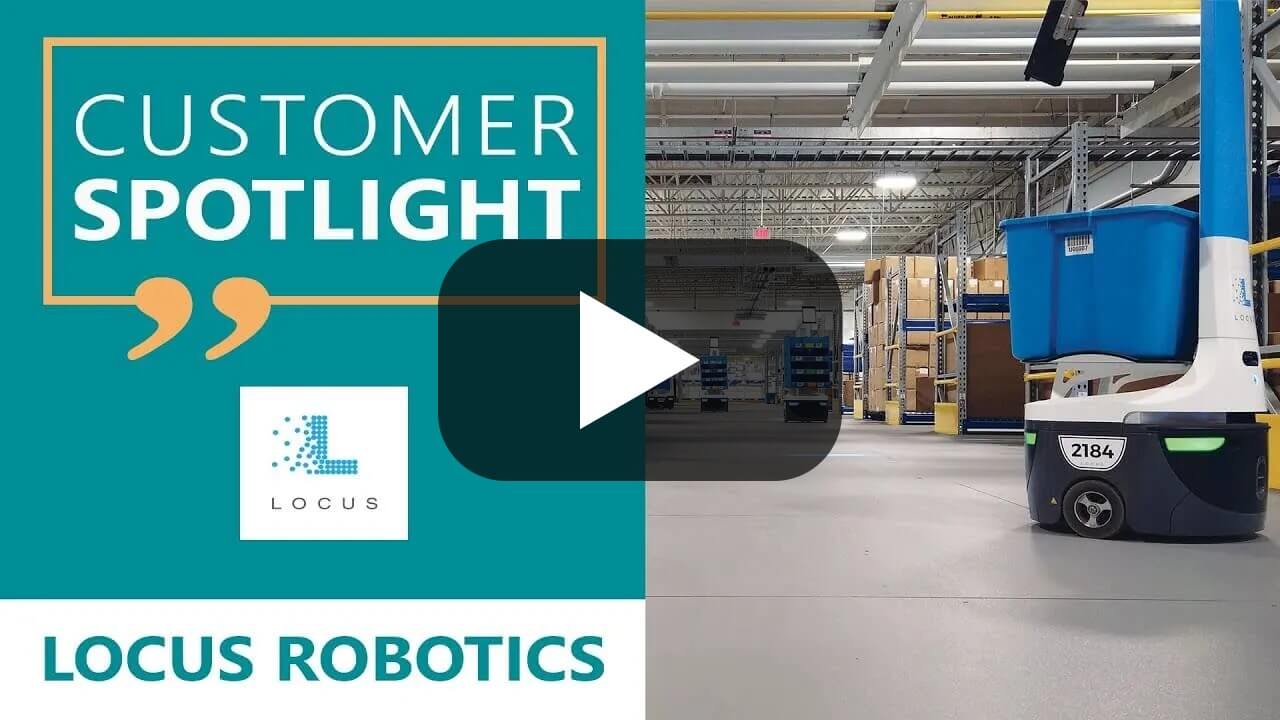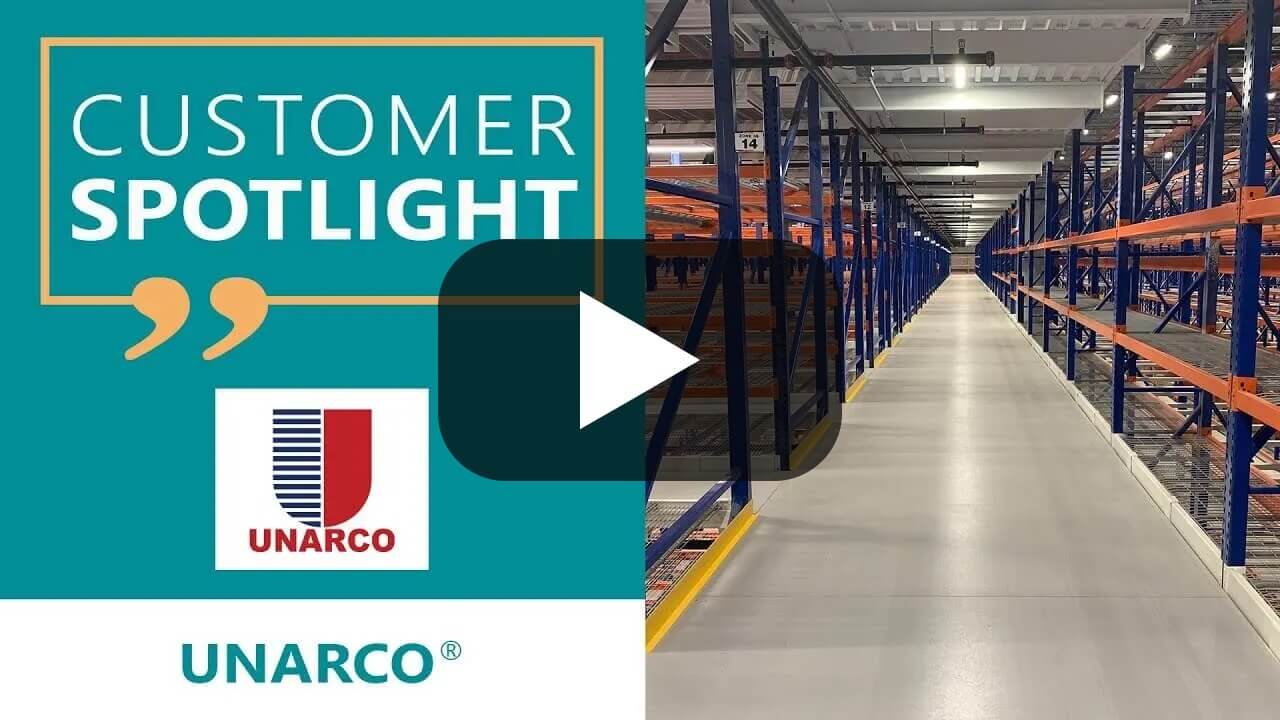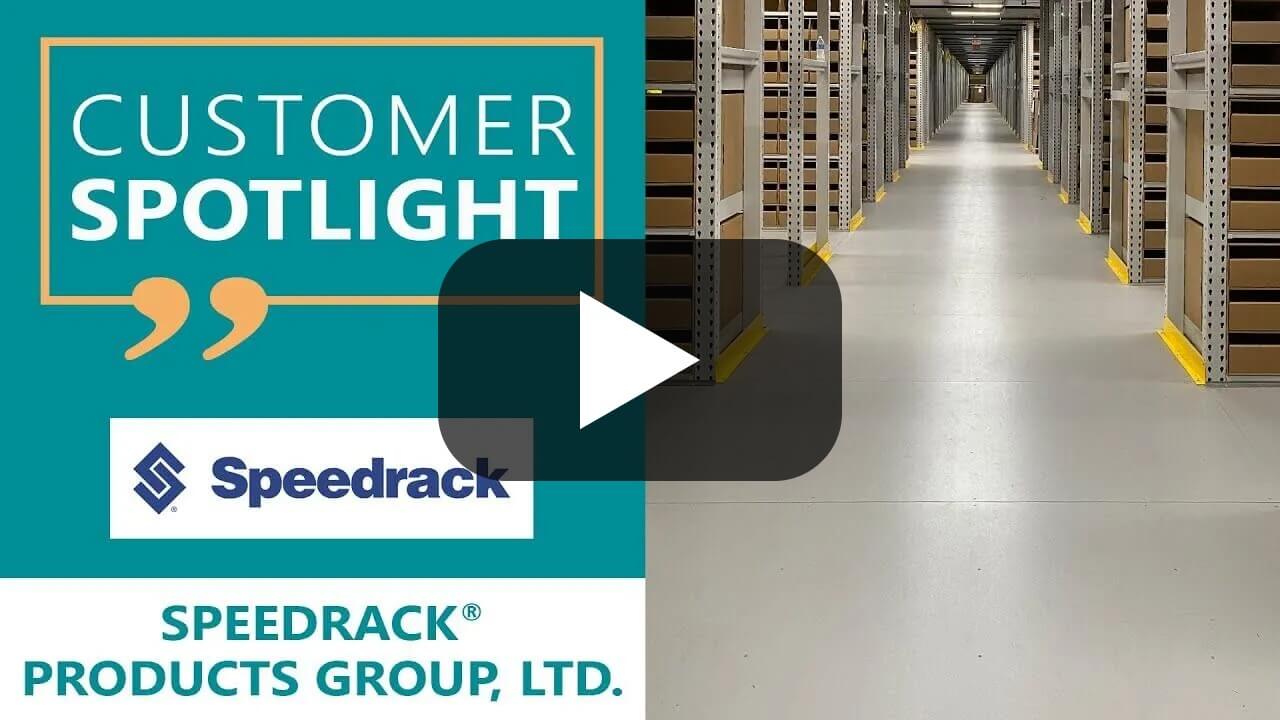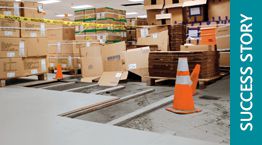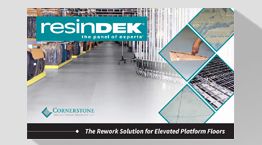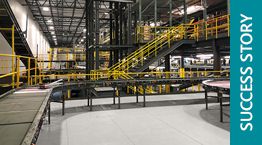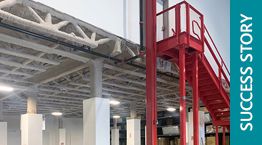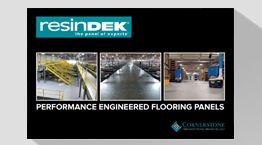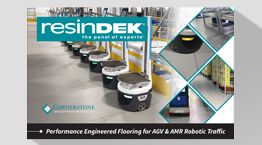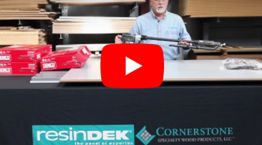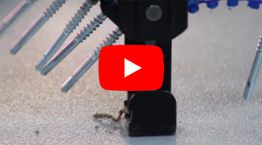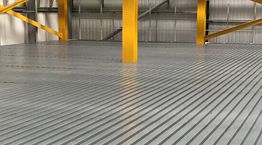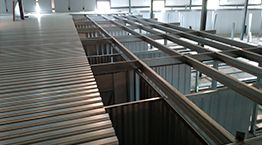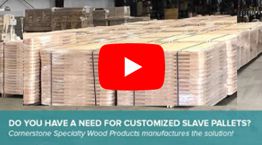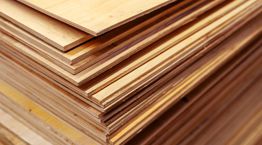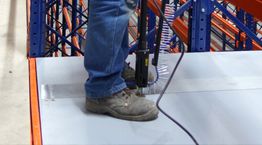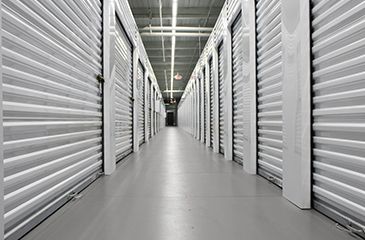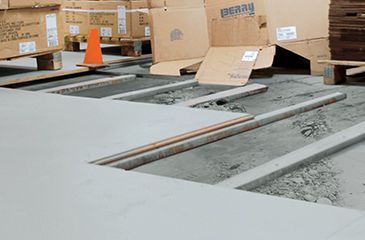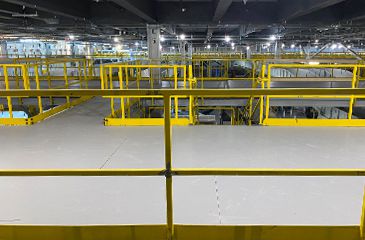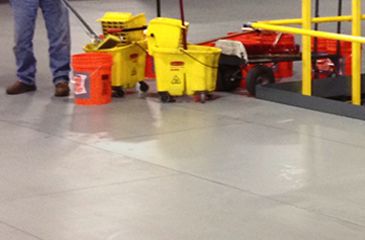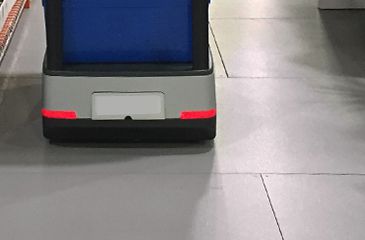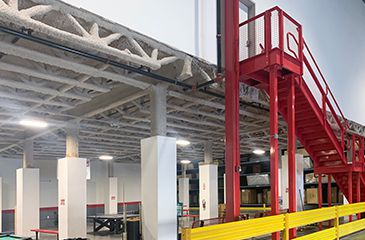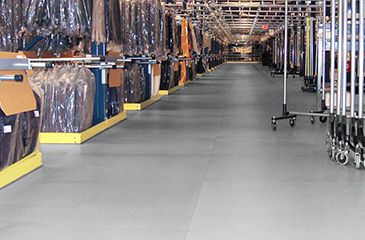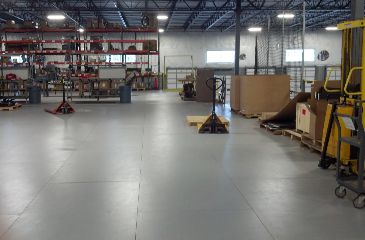
How Warehouse Mezzanine Flooring Earns Credits for LEED® Certification
AUG 31 2021 | MATERIAL HANDLING, ROBOTICS, SELF-STORAGE
Eco-friendly practices typically receive favorable public sentiment.
And, with a lower carbon footprint, it can help bolster cost savings through supportive government policies.
Trends around energy consumption and updated government regulations have led to more business opportunities related to "going green." What's more, making shifts towards sustainability can have real significant impacts on your bottom line.
It's important to understand LEED® certifications and how they can help your business when it comes to warehouse flooring on mezzanines and work platforms.
What is LEED® Certification?
LEED, conducted by the U.S. Green Building Council, stands for "Leadership in Energy and Environmental Design."
Being LEED® certified indicates your company's commitment to the use of green building products and eco-friendly design.
LEED® certification can provide your organization with guidelines for products and design features that are more energy-efficient, sustainable, and even cost-effective.
It's the most widely recognized green building rating system in the world. The program sets the standards for what's genuinely environmentally friendly and what's not.
Making the switch toward obtaining a LEED® certification can:
- Reduce energy waste
- Save time and money
- Attract customers looking to support green businesses
- Support healthier indoor space
Becoming LEED® certified is one of the best ways to show that you're serious about reducing your environmental impact.
Ways to Earn Credits for LEED® Certification
To become certified, a building must earn a minimum number of credits or points - garnered through construction and design materials or practices. The greater the points (i.e., the greater number of eco-conscious standards you meet), the more prestigious the certification level.
But did you know…?
Your choice of warehouse flooring can help you earn credits! This could be for either new or existing construction.
There are several ways to earn LEED® certification points with your warehouse floors.
Using Recycled Materials
You should make sure your floor is made from renewable materials or contains a high percentage of recycled materials. Our ResinDek® mezzanine flooring panels, for example, consist of recycled content.
No Added Formaldehyde
You can earn additional LEED® points if your flooring choice contains no harmful adhesives or solvents or meets other industry standards. ResinDek's warehouse flooring panels contain no added formaldehyde and are considered a low-emitting material.
Reusing Salvaged Materials
Reusing salvaged building materials also helps earn credits. Choosing eco-friendly wood flooring made of salvaged wood can help contribute. One of the great benefits of choosing ResinDek for your warehouse floor is that you can recycle it into new products after the service life. ResinDek can be grounded up, and the fibers reconstituted into new products.
Local Sourcing of Materials
Choose warehouse flooring materials that are sourced and manufactured within a 500-mile radius of the installation site. By using hardwood flooring that's manufactured using locally sourced materials, you can receive credits that contribute to the certification.
Products Certified by FSC®
Credits are also available for using wood products that come from forests that are responsibly managed. It must be certified by the Forest Stewardship Council® (FSC®). We are proud that our ResinDek mezzanine flooring panels meet FSC's stringent criteria to receive FSC® Certification and contribute to LEED® credits. Please let us know prior to ordering if FSC® certified ResinDek® panels are required.
Our Commitment to Environmental Sustainability
Cornerstone Specialty Wood Products engages in sustainable practices to protect our planet's natural resources for future generations.
Our manufacturing processes develop and improve operations to minimize waste, prevent water, air pollution, and more.
Since our company is a U.S. Green Building Council member, you can be sure that our warehouse flooring is a solid choice when trying to comply with eco-friendly regulations and earn LEED® credits.
To find out more about the environmental benefits of our warehouse flooring panels, get in touch today!
ADDITIONAL BLOG POSTS
DEC
5
2023
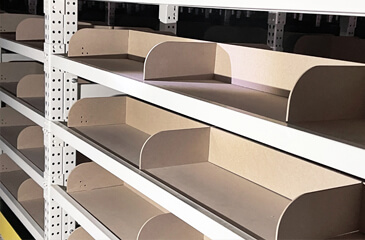
MATERIAL HANDLING, SHELVING
Comparing Shelving Systems for Industrial Pallet Racks: How to Pick the Best Solution
APR
25
2023
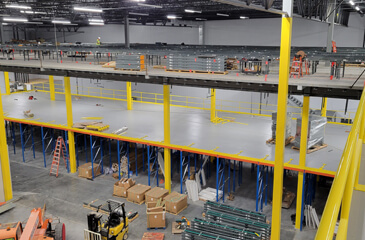
MATERIAL HANDLING, ROBOTICS, SELF-STORAGE
Warehouse Expansion: What To Consider When It's Time to Expand
AUG
23
2022
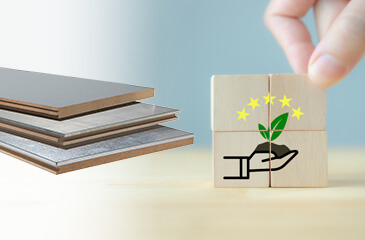
MATERIAL HANDLING, ROBOTICS, SELF-STORAGE
ResinDek Products Receive Renewed SCS Certification of Environmental Sustainability
JUL
7
2022
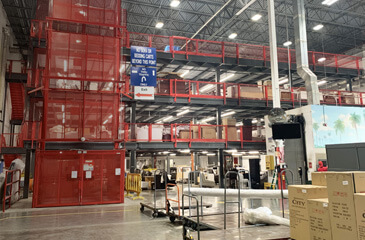
MATERIAL HANDLING, ROBOTICS, SELF-STORAGE
Key Flooring Considerations When Updating an Existing Industrial Mezzanine System
MAR
1
2022
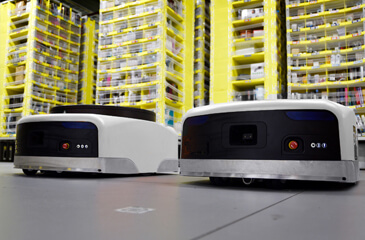
ROBOTICS AGVs AND AMRs
6 Ways Engineered Mezzanine Flooring Maximizes Implementation Success
SEP
14
2021
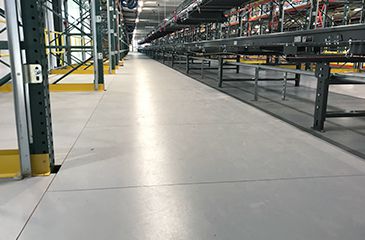
MATERIAL HANDLING, ROBOTICS, SELF-STORAGE
Three Reasons Why Your Industrial Mezzanine Floors Should Have IAPMO Validation
AUG
31
2021
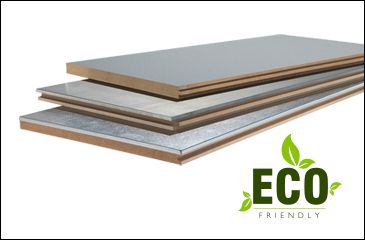
MATERIAL HANDLING, ROBOTICS, SELF-STORAGE
How Warehouse Mezzanine Flooring Earns Credits for LEED® Certification
JUN
29
2021
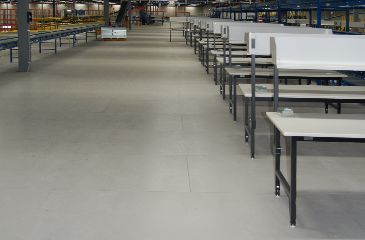
MATERIAL HANDLING, ROBOTICS, SELF-STORAGE
Mezzanine Floors: Strong, Sustainable, Speedy, Safe, Spacious
JAN
24
2021
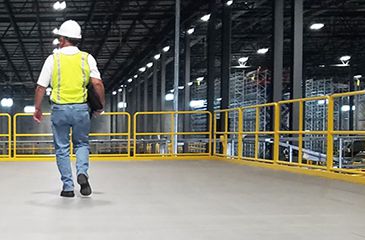
MATERIAL HANDLING, ROBOTICS, SELF-STORAGE
Study Finds ResinDek® Flooring 34% More Cost Effective Than Concrete
MAY
31
2019
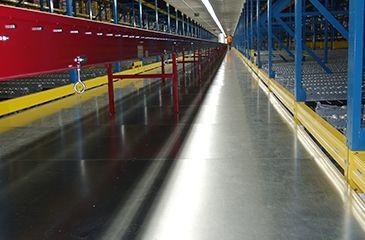
MATERIAL HANDLING, ROBOTICS, SELF-STORAGE
New ResinDek with MetaGard® Finish: Our Strongest Surface Option Yet
MAY
21
2018
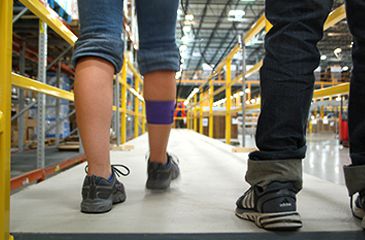
MATERIAL HANDLING, ROBOTICS, SELF-STORAGE
The Ergonomic Dangers of Concrete Flooring (And How ResinDek® Floors Can Help)
